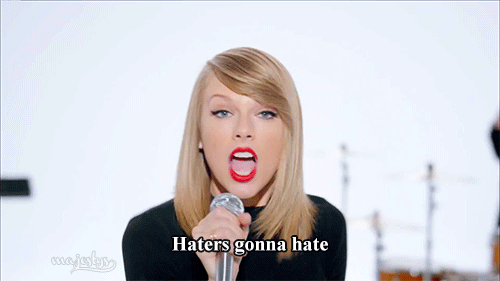Collecting late led me to a few interesting things. The main one, like the Star Trek new movie series, is that it convinced me that there was something worthwhile in the older versions of these stories. They weren’t just campy stories with too many words per panel that gatekeepers thought were some sort of glorious nerd bible.
The main series that convinced me to go back and read the older versions were Kelly Sue DeConnick’s run on Captain Marvel and Charles Soule’s run on She-Hulk, which will be the foci for the rest of this post. Both comics were re-launched as part of Marvel Now, although the redesign for and run of Captain Marvel began slightly before they started using that term; and brought characters first created in the late 1970s into the ‘Now’.
Both were fantastic. The characters were flawed and centered on women with real responsibilities and problems, minus the saving-the-world-from-pending-doom part. DeConnick and Soule crafted these books with the care that I wanted from comics and their great stories were integrated with art by Emma Rios and Javier Pulido that captured the awe and draw of each character. Art is a large portion of the comics game and everyone judges books by their covers so having the amazing writing of DeConnick and Soule accompanied by such imaginative styles was truly exceptional.
Once I finished each series, or I should say in the case of She-Hulk the series finished on me, I went in search of more to learn about the development of these characters. With Captain Marvel, I went back to the source of Carol Danvers, Ms. Marvel, by reading the Essential Ms. Marvel. With She-Hulk I picked up the, She-Hulk: The Complete Collection Vol. 1 by Dan Slott. I expected both to be a bit problematic, because I was reading in the age of Social Justice Warrior comics obviously, but I was surprised by which was more problematic.
The original Ms. Marvel run went from 1977 through 1979 and the Essential volume covered issues 1-23 of the original series and Marvel Super-Heroes Magazine #10-11. While campy, with questionable costuming, Carol Danvers of the 1970s was an interesting and likeable character. In certain ways, I enjoyed this Ms. Marvel more than the modern Carol Danvers. She was more brains than brawn, something I could relate to being a petite woman getting a graduate degree. She was also unapologetically feminist arguing for more pay, editing a magazine for women but not necessarily about “women’s” things, and living on her own without a significant other. Cool and interesting in its historical context, cool and interesting today. There are problems with the way she speaks and some of her actions, which can be read as third-wave feminist but can also be read as stereotyping women’s behavior. Regardless, she was a great start to the character and I hope they blend this origin with the modern Carol Danvers when the write the script for Captain Marvel.
The Dan Slott She-Hulk: The Complete Collection Vol. 1 covers issues 1-12 from the 2004 series and 1-5 from the 2005 series and my review is less favorable for this set of comics. Although written in a more modern era, this run of She-Hulk didn’t impress me with it’s “progress”. Not that all comics need to be progressive, but Dan Slott made me disappointed with the use of She-Hulk in comics especially when this is the series many Amazon Reviewers use to compare to the work of Soule. The art is good enough, though more similar to stereotypical comics art, and Slott’s Jennifer Walters comes off as lazy and almost incapable in her practice as a lawyer. The use of the law in it is loose and the meta use of comics in the firm comes off as campy and pandering to older audiences. Seriously, do you really think in world were superheroes exist comics books could be used as legal precedent? Additionally, Jennifer seems to have lost any sense of gravity or depth, she hooks up with random guys (not a problem) but then always feels bad about it, an annoying trope for female sexuality. There are some good moments in the comic and some solid characters but it didn’t come off as particularly heartfelt or interesting and it definitely made me appreciate Soule and Pulido’s run on the comics even more. (Where the law is based on real law and She-Hulk is actually Hulky)
So what is the problem with reading Now before Then, in the “wrong order”? Nothing, inherently. Good stories and art are, at least hypothetically, timeless. For me it was the unintentional expectations that I put on these stories. It’s hard not to assume that something written in the 1970s will necessarily be bad, sexist, and trope-y or at least more so than stuff written in the last 15 years. But clearly, that wasn’t the case. These examples demonstrated to me that progress isn’t a one way street and it was a reminder that realistic and important portrayals of women and other minority characters have happened in the past.
Furthermore, what’s important about supporting such stories now, and reading and promoting those that did that in the past, is the real fear that comics, and other media, will falter and fall again on stereotypes rather than keeping us moving forward. Supporting books like She-Hulk and Captain Marvel that are able to highlight a character’s regular and super strengths help to keep us moving forward but we also need to be aware that they aren’t the first to make steps in the right direction and that once is not enough. Progress is a constant struggle and requires readers and creators to be aware of the fight.

